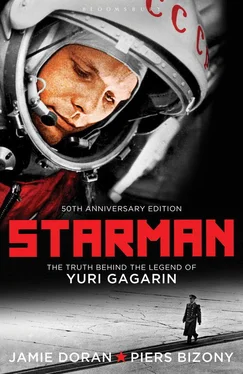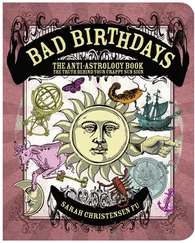This apt metaphor of a pyramid helps illustrate that Gagarin’s life was full of contradictions. He was an ambitious and competitive individual, acutely aware that the central achievement of his life was based on the efforts of many others who were not even permitted to reveal their names, let alone share in his public glory. He was a peasant boy at ease with complex engineering equations; a programmed technician who could think for himself; a loyal member of a conformist society who rebelled against the system. He was impetuous, occasionally thoughtless, yet highly disciplined in his work and responsible towards others, often at great risk to himself. He knew little of politics, while displaying a remarkable knack for diplomacy, both at home and abroad. He was an adulterer who never really betrayed his wife and family. As all these conflicting elements of his life intermingle, the story that emerges is one of an essentially decent and brave man giving his best in extraordinary circumstances. He was a hero, in the best and most honest sense of the word.
On the morning of April 12th, 1981, engineers, technicians and politicians held their breath as a great new adventure unfolded before their eyes. The risks were immense. Success would deliver glory for all concerned. Failure would bring national grief and global humiliation. Thousands of spectators gathered on the Florida coastline to witness not just the launch of the space shuttle Columbia, but the birth of a new era in rocket travel. As former NASA chief Daniel Goldin describes such moments in space affairs: ‘your breathing slows, your heartbeat becomes noticeable, and an uncomfortable muscle tension fills your body.’
As the shuttle programme closes down after 30 years, the jury is undecided on its legacy. NASA’s flagship was an adaptable and powerful machine that made possible our first permanent human settlement in orbit. It was also dangerously temperamental and alarmingly expensive to operate. Even so, its thunderous first ascent to orbit in 1981 was a moment of tremendous pride for America on that balmy morning at the Kennedy launch centre.
Exactly twenty years prior to that day, Soviet technicians, engineers and (while there were no politicians present) a good scattering of KGB chiefs felt ‘their breathing slow, their hearts thump, their muscles tighten’ as they watched events from a concrete bunker in Baikonur on the remote steppes of Kazakhstan. A young man sat in what might well be described as a tin can atop a volatile bomb, waiting to be shot into space – and he was laughing and joking with the men who turned the final bolts on his capsule and sealed him into place, before abandoning him to eternal fame or a sudden violent death. Yuri Gagarin’s destiny was decided by new and revolutionary pumps, pipes and turbines built by a society that was undergoing a similarly dangerous technocratic experiment on a far vaster scale.
A Space Foundation survey undertaken in 2010 ranked Gagarin joint sixth ‘most popular space hero of all time.’ Joint, that is, with Captain James T. Kirk of the Starship Enterprise . If Gagarin were alive today, we can be certain he would have been laughing once again – and this time at the very top of the heroic space pyramid. We all admire the Apollo lunar astronauts for their bravery and undoubted professional brilliance, and do not begrudge them the adoration that they enjoy in retirement. Quite rightly, they are revered as heroes; but Gagarin’s charm, wit and approachability would have assured him a place in the hearts of this modern generation, too. A place that no one else in all human history can ever occupy. Number One. The First Man in Space.
It is a genuine honour that our book has been republished some 13 years after it first hit the bookshelves. We had timed the first publication in 1998 to mark the 30th anniversary of Gagarin’s wasteful and untimely death in a plane accident (for that’s what it was, despite the whining of the conspiracy theorists). To be able to transmit his story to the public once again, and this time to mark the half-century since human beings first broke through the Earth’s atmosphere and entered the cosmos, is to recognise one of the most important moments in human development. As mentioned in the very first pages of this book, nothing could lend greater validity to that moment than Neil Armstrong’s own thoughts on the matter. ‘It was Yuri Gagarin who called on all of us to follow the stars’.
The unique nature of this book, and the reasons why it is such an important document, are all attributable to those extraordinary people who agreed to speak with us back in the late 1990s. Our narrative is a record gleaned almost entirely from those who were at the scene: a first-hand account from men and women at the sharp end of the Soviet space programme, whose voices had been for so long silenced by fear of a visit from the foot soldiers of the Lubyanka.
We were fortunate to be in Russia at a time of unprecedented freedom, largely because the old security apparatus collapsed in disarray upon the dissolution of the USSR. It was a chaotic time, of that there can be no doubt, with mafia-style gangs overshadowing every business, large and small, and many aspects of Russia’s shape-shifting politics, too. Boris Yeltsin issued bizarre political decrees and underwent quintuple heart bypasses between bouts of heavy drinking, while the value of the ruble sank below the cost of the paper it was printed on. Yet for us western observers, this was an extraordinary window of opportunity. Freedom of speech really did emerge, at least for a while. People who had worked on top-secret Soviet projects could speak openly for the first time.
Prior to this book, all previous publications on Gagarin were KGB-sanctioned, and these were plagiarised by international journalists, producing a glossed and unreliable version of the truth about his mission (although our bibliography does list some fine exceptions – and no doubt we, too, have made errors). Never before had anyone been allowed to speak truthfully about the lethal failings and appalling risks involved in the early Soviet space programme, and nor had they been able to talk intimately and in detail about Gagarin’s life, including his own failings, largely brought on by alcohol abuse and the stresses of international fame. The KGB media minders were unimaginative and obsessed with secrecy. They failed to understand that what makes us human makes us great. In fairness, NASA’s media spinners in the age of Apollo blundered into precisely the same errors. By the time they had blitzed the world with inhuman facts, figures and ‘launch data,’ even the conquest of the moon seemed dull. But it’s always been easier to dig up and revive the more humanistic details of Apollo and its astronauts than to reveal the hidden stories of the Soviet rocketeers.
To the cosmonauts, engineers, KGB agents, family members and everyone else who spoke with us during that short window of expressive freedom, we offer our deepest thanks. This story could never have been told without them – and as, one by one, they slip away, their individual contributions to this story can never be told again. Those who yet live do so in a society which has, perhaps foolishly, welcomed a return to ‘order’ under a new security apparatus, with strange and unsettling 21st century ambitions. Once again, voices are being silenced.
Of all the lost interviewees whom we mourn, none do we miss more than the charismatic and enigmatic Gherman Titov. He was the ‘nearly man’ who accepted, many years after the fact, that the choice of Gagarin as first man in space was the correct one. Many a half-bottle of vodka was shared in Baikonur and our Moscow apartment, while Titov regaled us with numerous anecdotes of times shared with his erstwhile cosmonaut colleague. Rivalry there may have been, but a true love and admiration for Gagarin, coupled with an almost searingly honest analysis of his own story, makes Gherman almost as great a presence in this book as Gagarin himself.
Читать дальше












